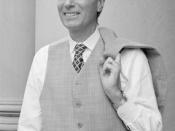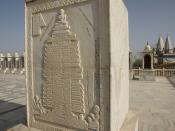In the novel, Sophie's World by Jostein Gaarder many philosophical questions are raised. But one of these questions stands up above the rest of them as the most crucial. The question is, 'What is knowledge?' and, 'How do we know what we know?'The question 'what is knowledge?' is relevant to all human beings and all groups in society. Everybody from a newborn baby to someone drawing their last breath or a rebellious group of teenagers, a university student, a stay at home mum, a lawyer, a child or a council worker, everyone is on the pursuit of some sort of knowledge. Everyone wants to learn, to find out more and to understand better and more completely.
In the words of the great philosopher, Francis Bacon 'knowledge is power .' This statement is true. Knowledge is the power to excel and the power to make important decisions. Knowledge gives authority, otherwise known as power.
Whoever has knowledge also has power in one way or another.
If everyone wants knowledge, then does that mean that everyone wants power? Yes, knowledge moves people forward from one stage to the next, or it moves you up from one stage to the next, thus giving you a more powerful position (though often other words are substituted for the word power or powerful, such as influential, responsible, dominant or significant - but in this context they all mean relatively the same thing). So, being in the pursuit of knowledge is being in the pursuit of power.
In the dictionary knowledge is defined as what someone knows about a particular subject, about different things or about life in general. 'Macmillan English Dictionary (2002, p. 791)'Knowledge does not mean being smart or exceptionally intelligent, rather it simply means knowing things. So your knowledge is the things that you...


